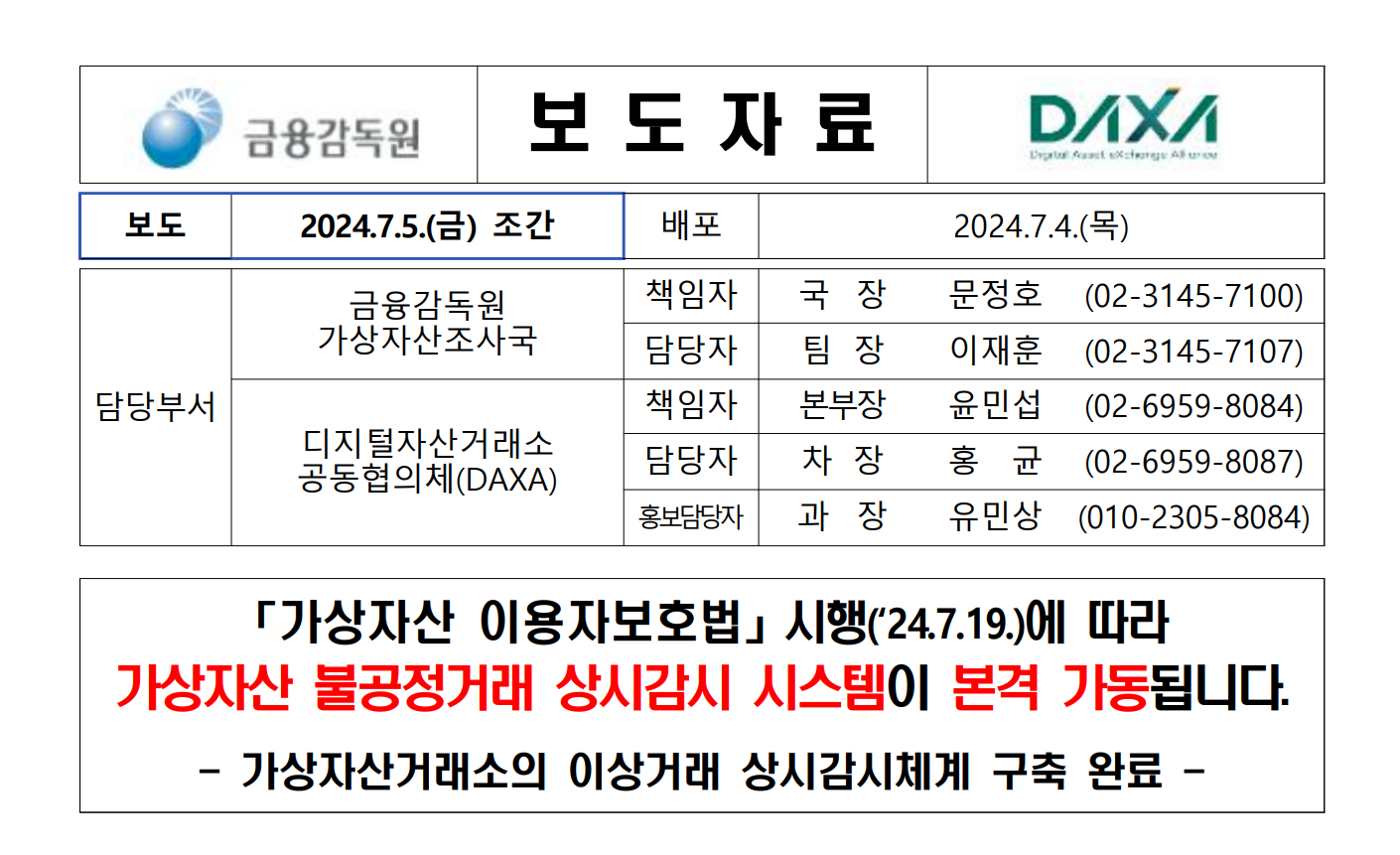South Korea’s Financial Supervisory Service (FSS) has announced a new “continuous monitoring system” to track suspicious cryptocurrency transactions on exchanges. This initiative aims to enhance security and protect investors who participate in the cryptocurrency market.
“Based on the real-time monitoring system for abnormal trading in virtual asset exchanges, unfair trading practices in the virtual asset market will be promptly detected.”
FSS
How the monitoring system works
Starting on July 19, 2024, the FSS will begin using this advanced system to monitor crypto transactions around the clock. The system will identify and flag any irregular activities that could indicate fraud or market manipulation.
This includes practices like using undisclosed information for trading, price manipulation, and forging transaction data.

The agency has collaborated with major South Korean crypto exchanges, which handle 99.9% of the country’s trading volume, to establish this monitoring system.
These exchanges, including Upbit, Bithumb, Coinone, Korbit, and Gopax, will report any suspicious transactions directly to the FSS through a dedicated data transmission line. An FSS representative explained:
“We’ve benchmarked the Korea Exchange’s criteria for identifying abnormal transactions and developed models to filter out suspicious activities. This ensures that the system can meticulously detect and report any dubious transactions.”
New regulations to protect investors
The launch of this monitoring system coincides with the implementation of South Korea’s first comprehensive crypto law, the Virtual Asset User Protection Act.
This law, also effective from July 19, plans to prevent unfair trading practices and protect investors in the crypto market. Under the new law, crypto exchanges are required to:
- Implement stricter review guidelines for token listings.
- Safeguard over 80% of user deposits in cold storage.
- Enroll in insurance programs to compensate users in case of security breaches.
The FSS has also advised exchanges to form dedicated teams to monitor and report suspicious transactions. These teams will use auditing information, including on-chain data, to uncover illegal activities.
Reporting by Jai Hamid





